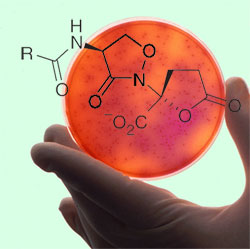 The Ancient Egyptians, the Chinese and Indians of central America all used molds to treat infected wounds. However, thy didn't understand the connection of the antibacterials properties of mold and the treatment of diseases.
The Ancient Egyptians, the Chinese and Indians of central America all used molds to treat infected wounds. However, thy didn't understand the connection of the antibacterials properties of mold and the treatment of diseases. Late 1800's
The search for antibiotics began in the late 1800s, with the growing acceptance of the germ theory of disease, a theory which linked bacteria and other microbes to the causation of a variety of ailments. As a result, scientists began to devote time to searching for drugs that would kill these disease-causing bacteria.
1871
The surgeon Joseph Lister, began researching the phenomenon that urine contaminated with mold would not allow the successful growth of bacteria.
1890s
German doctors, Rudolf Emmerich and Oscar Low were the first to make an effective medication that they called pyocyanase from microbes. It was the first antibiotic to be used in hospitals. However, the drug often did not work.
1928
Sir Alexander Fleming observed that colonies of the bacterium Staphylococcus aureus could be destroyed by the mold Penicillium notatum, demonstrating antibacterial properties.
Prontosil, the first sulfa drug, was discovered in 1935 by German chemist Gerhard Domagk (1895–1964).
1942
The manufacturing process for Penicillin G Procaine was invented by Howard Florey (1898–1968) and Ernst Chain (1906–1979). Penicillin could now be sold as a drug. Fleming, Florey, and Chain shared the 1945 Nobel Prize for medicine for their work on penicillin.
1943
In 1943, American microbiologist Selman Waksman (1888–1973) made the drug streptomycin from soil bacteria, the first of a new class of drugs called aminoglycosides. Streptomycin could treat diseases like tuberculosis, however, the side effects were often too severe.
1955
Tetracycline was patented by Lloyd Conover, which became the most prescribed broad spectrum antibiotic in the United States.
1957
Nystatin was patented and used to cure many disfiguring and disabling fungal infections.
1981
SmithKline Beecham patented Amoxicillin or amoxicillin/clavulanate potassium tablets, and first sold the antibiotic in 1998 under the tradenames of Amoxicillin, Amoxil, and Trimox. Amoxicillin is a semisynthetic antibiotic.
